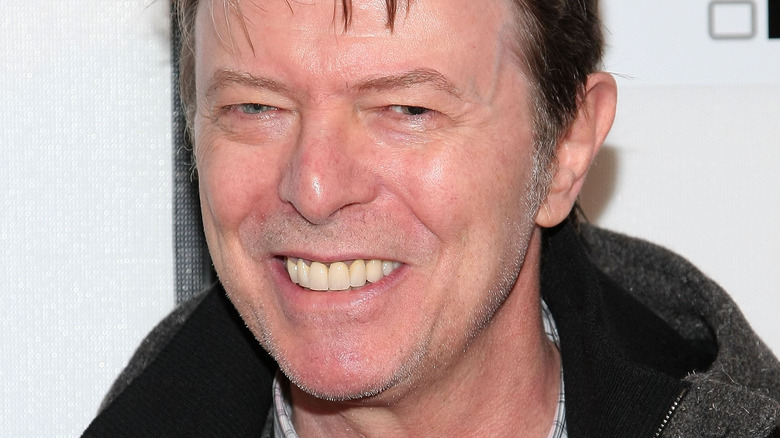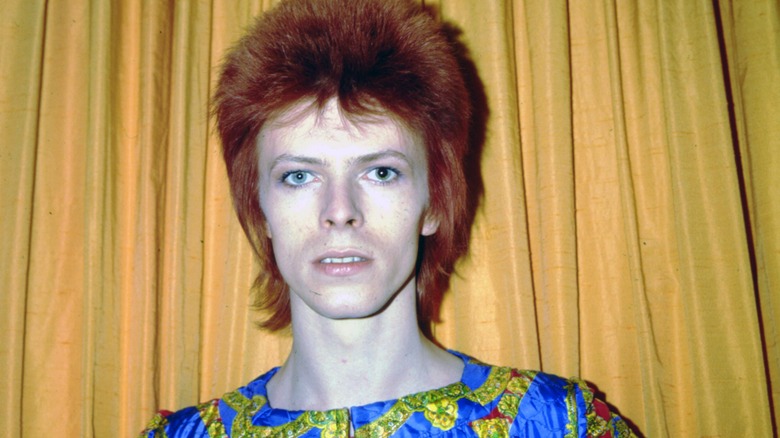Director Brett Morgen Pitched A Wildly Different Project To David Bowie Long Before Moonage Daydream
For nearly 50 years, David Bowie excelled at merging the avant-garde within the constructs of popular music. From his earliest songs and performances that explored surreal concepts such as humankind's fascination with space travel in "Space Odyssey" up until his poignant final album "Blackstar" in 2016, the music auteur left an indelible imprint on popular culture. Upon his death that same year, his influence stretched far and wide in popular music with fellow music artists across several decades paying tribute to his life and legacy. His passing also left behind a unique and eclectic acting career, with his performances in films such as "The Hunger" and "Labyrinth" beguiling audiences for decades.
Bowie's unforgettable impact on nearly half a century of music, performance, and cinema will live on through the ages for fans both old and new (via The Hollywood Reporter). A prime example of this is director Brett Morgen's "Moonage Daydream," a dazzling and energetic collection of visually striking montages of some of the performer's most powerful stage performances. Filmed in a hazy glow, the movie is a complete love letter to his artistry instead of his private life. Interestingly enough, the director once met Bowie and pitched him an original project to appear in.
Brett Morgen envisioned a surreal film centered on a David Bowie performance
In an interview with Variety, director Brett Morgen was asked if he ever met David Bowie. "I met David in 2007 to discuss a potential collaboration on a hybrid nonfiction project -– not "Moonage Daydream," something very different that was going to be more performance-based," he said. "That film that I pitched him imagined that David never evolved after Ziggy and that we would find him in present-day Berlin, and he has been playing the same songs for the past 40 years at a dive bar in the middle of the night to the last four people on Earth who are paying attention. It was a kind of wild presentation."
The proposal heavily aligned with themes of desolation and the passage of time that appeared in many of the musician's songs, and even some of his acting work such as the esoteric and often forgotten sci-fi flick, "The Man Who Fell To Earth." The pitch also pointed to Bowie's famed early stage persona "Ziggy Stardust," which, for many in early 1970s Britain, was spellbinding in terms of the artist's style and androgynous appearance. Ultimately, it wasn't to be, as Morgen concluded. "It was going to require a lot of shooting and David was in semi-retirement at that point," the director said. "The man who became his executor called afterward and said, you know, 'David enjoyed the pitch but he's not at a place where he can do this right now.'"

